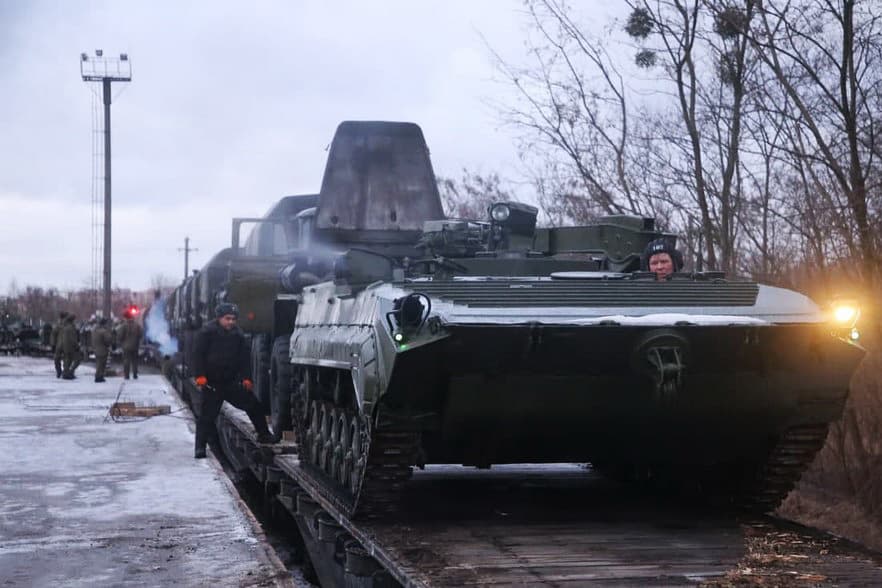Russia moves troops to Belarus ahead of February joint military drills

Russia has begun sending its troops and combat vehicles to Ukraine’s northern neighbor Belarus ahead of next month’s joint military exercises, in a move likely to stir Western fears that Moscow is preparing to further invade Ukraine.
Belarus's defense ministry announced on Jan. 18 that Russian troops have already arrived, weeks before the start of military drills scheduled for Feb. 10-20. Videos posted on social media allegedly show artillery and other military vehicles moving towards Belarus.
Belarus dictator Alexander Lukashenko said that the military maneuvers with Russia will be held near the country’s western rim, near Ukrainian borders as well as NATO's eastern members Poland and Lithuania.
Ukrainian military experts have expressed concern that the joint military drills can effectively put pressure on Ukraine’s defense by way of the two country's 1,130-kilometer border with Ukraine.
The joint military exercises are to take place as Russia musters forces along Ukraine’s eastern border, threatening a potential full-scale invasion. Moscow continues to carry out regular military drills with nearly 100,000 Russian troops concentrated close to Ukraine’s border.
Moscow denied having plans to attack its neighbor but has demanded security guarantees from the West, which includes a halt to NATO’s eastern enlargement and a formal veto for Ukraine's potential accession to NATO.
Lukashenko branded the exercises as “normal” drills aimed at “working out a certain plan for confronting the West and the south (Ukraine)," during his meeting with Belarus military officers on Jan. 17.
Belarus remains heavily reliant on its relationship with Russia given harsh sanctions imposed on the country following a brutal crackdown on peaceful protestors in August 2020. The protests were sparked by Lukashenko's "victory" in what appeared to be rigged presidential elections.
Lukashenko said that the drills were needed because Poland and Baltic countries allegedly have more than 30,000 soldiers stationed near Belarus. He also claimed that Ukraine increased its military presence near the Belarus border.
The Kremlin said separately that Moscow was right to be concerned after learning about the reports indicating that Estonia was prepared to host up to 5,000 additional NATO soldiers.
“It is exactly those things that prove that we have reasons to be worried,” Kremlin's spokesman Dmitry Peskov said.
NATO deployed four international battle groups to defend Poland and the Baltic states of Lithuania, Latvia and Estonia in 2017 as part of a wider program to deter Russian aggression.
The battalion-sized units were deployed in response to Russia’s illegal annexation of Ukraine’s Crimean Peninsula in 2014 and its ongoing offensive in Ukraine's eastern Donbas region.
The latest major joint exercise between Belarus and Russia was in September involving over 200,000 troops.










